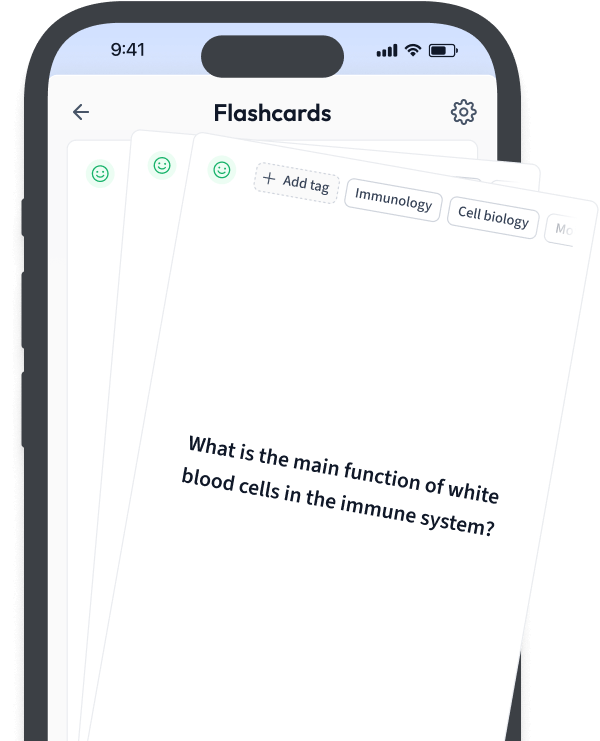Fig. 1 - Thomas Cromwell was originally a lawyer before eventually becoming Lord Privy Seal and Earl of Essex.
Wolf Hall: summary
Overview: Wolf Hall |
| Author of Wolf Hall | Hilary Mantel |
| Genre | Historical fiction |
| Literary Period | Postmodernism |
| First published | 2009 |
| Brief Summary of Wolf Hall | - The story follows Thomas Cromwell, a blacksmith's son who rises to become an advisor to King Henry VIII.
- The novel explores the political and religious upheaval of Tudor England, including Henry VIII's desire to divorce his first wife and marry Anne Boleyn, which sets off a chain of events that lead to the English Reformation.
|
| List of main characters | Thomas Cromwell, Henry VIII, Anne Boleyn, Cardinal Wolsey, Stephen Gardiner, Thomas More. |
| Themes | Wolf Hall explores a variety of themes, including power, politics, religion, and identity. |
| Setting | The fictional biography of Thomas Cromwell between 1500-1536, during the English Reformation and Henry VIII divorce from Catherine of Aragon. |
| Analysis | - Wolf Hall explores the tensions between old and new, Protestantism and Catholicism, and other significant shifts in the political and religious landscape of Reformation England.
- The novel also offers a new interpretation of Thomas Cromwell. Instead of being a one-dimensional villain or hero, Cromwell is a complex and multifaceted character whose motivations and actions are often ambiguous.
|
The novel begins in Putney in 1500. A young Thomas Cromwell is being beaten by his father, Walter. Bruised and in fear, Thomas Cromwell decides to flee England to become a soldier.
The story continues 27 years later when Thomas Cromwell is back in England and in the service of Cardinal Wolsey, then advisor to Henry VIII. The pair become close and Wolsey tells Cromwell of the King's desire to annul his marriage to Catherine of Aragon. This task becomes the driving force of the novel.
Cardinal: A leading official of the Roman Catholic Church, appointed by the Pope.
Henry VIIi wishes to annul his marriage on account of Catherine's inability to produce a son. Cardinal Wolsey begins the process of the annulment but Catherine refuses, insisting their marriage is valid. Worried that Catherine will appeal to the Pope, Wolsey goes to France to appeal to a delegation of Cardinals. While the Cardinal is away, Liz, Thomas Cromwell's wife, and two of his daughters die when London is plagued with sweating sickness.
After a chaotic court appeal, Cromwell is warned by Stephen Gardiner that the Cardinal is in danger of losing his title should he fail to annul the marriage. The Cardinal does fail and is soon dismissed from his London home and his possessions removed. Cardinal Wolsey's fall from grace and exile deeply saddens Cromwell. Cromwell then becomes a member of parliament in order to argue for Wolsey's reinstatement.
After Wolsey
Thomas More, as Lord Chancellor, signs a petition against Cardinal Wolsey. More has also been torturing and burning anyone who owns a translated bible, labelling them heretics. Thomas Cromwell seeks the king personally for help for Wolsey. The king sends some aid to Wolsey but refuses to intervene with Thomas More. However, the interaction impresses Henry and soon he is spending more time with Cromwell.
Despite Cromwell's efforts, Cardinal Wolsey is arrested and dies when he is sent back to London. Anne Boleyn is now frequently found at the king's side, and one of her attendants is the young Jane Seymour. Thomas Cromwell becomes a member of the king's court and, together with Anne Boleyn, begins to plot More's downfall so Henry can marry Anne.
Cromwell's Rise
By the year 1532, Cromwell tries to pass a bill to make Henry the head of the church. Thomas More and Stephen Gardiner oppose the bill but it passes regardless. Thomas More then loses his post as Lord Chancellor and Thomas Cromwell replaces him with a trusted friend. The King's court travels to France to appeal for King Francois to support the annulment. In France, there are rumours that Henry and Anne Boleyn have already exchanged vows in secret. On returning, Cromwell discovers Anne is pregnant and plans to expedite the divorce so Anne can be coronated queen.
Anne becomes Queen and gives birth to a baby girl, Elizabeth, much to Henry's disappointment. Thomas Cromwell works on a succession bill to ensure Elizabeth becomes Queen rather than Catherine's child, Mary. Henry extends more power onto Cromwell, making him the keeper of the jewels. Thomas More refuses to sign to succession bill, his stubbornness annoying Cromwell, who believes that More is trying to martyr himself.
At the end of the novel, Thomas More is entrapped by Cromwell's lawyers and convicted and beheaded. Anne becomes pregnant with a boy but miscarries. The court head west for the summer which gives Cromwell time to visit the Seymours in Wolf Hall.
Wolf Hall: Setting
Wolf Hall is set during the English Reformation in the 16th century- a period characterised by the rise of Puritans or English Protestants, who sought to strip the English Church of its Catholic practices. Between 1500-1535, the English church separated from the Roman Catholic church, causing the Catholic Church and Pope to be stripped of their power. This resulted in the King of England, Henry VIII, becoming the head of the Church of England.
Wolf Hall: characters
Here we will look at some of the real-world characters that feature in the historical novel, Wolf Hall.
| Main Wolf Hall characters | Role in the novel |
| Thomas Cromwell | The protagonist who rises from humble origins in Putney to the advisor to Henry VIII. |
| King Henry VIII | His desire to marry Anne Boleyn and break from the church drives the plot. He has a volatile temper, and his decisions often make Court feel like a dangerous environment. |
| Cardinal Wolsey | Chief advisor to Henry who falls from grace. He is succeeded by Thomas Cromwell. |
| Anne Boleyn | She is the object of Henry's desires. Ambitious and sharp-tongued, she is nevertheless aware of her fragile standing in Henry's graces if she does not produce a son. |
| Thomas More | The Lord Chancellor and fervent supporter of the Catholic church. |
Thomas Cromwell
The protagonist of the novel, Thomas Cromwell was the son of a blacksmith who rose to the King's court. Cromwell spent a large amount of his youth abroad, fighting in the army in France and as a banker in Italy. After serving Cardinal Wolsey loyally, Cromwell moved on to the king's court after the Cardinal's death, being instrumental in the English Reformation.
He is a complex character who is both ruthless in matters of state, and compassionate in matters of family.
King Henry VIII
Famous for the number of his wives and his volatile nature, Henry's whims determine the narrative of the novel. His desire to divorce Catherine of Aragon and marry Anne Boleyn drives much of the plot. Henry is also growing older and is no longer able to partake in sports like he used to, making his worry over the succession of the throne increase as tensions with France and the Catholic Church grow.
Fig. 2 - Portrait of Henry VIII by Hans Holbein.
Cardinal Wolsey
Wolsey is the Archbishop of York and Lord Chancellor, as well as Cromwell's mentor. During the course of the novel, the reader witnesses his fall from grace after failing to annul Henry's marriage to Katherine of Aragon. Starting out as a chief advisor to Henry, he soon falls out of favour when he cannot deliver what the King wants. The Cardinal's own advisor, Thomas Cromwell, succeeds him.
Access millions of flashcards designed to help you ace your studies
Sign up for free
Anne Boleyn
Anne Boleyn is the object of Henry's desires as the novel begins. She was an attendant of Catherine of Aragon. Anne's ambition and social climbing are recognised and admired by Thomas Cromwell, seeing something of himself in her. In the novel, Anne is portrayed as having a sharp tongue and her aggressive behaviour begins to tire Henry towards the end of the novel.
Thomas More
Thomas More is a lawyer and fervent supporter of the catholic church. He becomes Lord Chancellor after the fall of Wolsey. In the novel, Thomas More is so ardent in his support of the Catholic Church that he is often found torturing and burning anyone found with a translation of the bible. He is considered the antagonist.
Thomas More would label his victims heretics against the church but his allegiances soon cause his downfall. His stubbornness to accept the reformation results in his execution.
Wolf Hall: the author Hilary Mantel
The author of Wolf Hall is Hilary Mantel (1952-2022).
Hilary Mantel was born in 1952 in England, to parents of Irish descent. Catholicism had a deep impact on Hilary Mantel, although the author states she had lost faith at age twelve. Hilary Mantel had studied law at the University of Sheffield and went on to work as a social worker. In 1972, Mantel married a geologist, Gerald McEwen, and the couple moved to Botswana for five years, and Saudia Arabia for four years after that. Once they had returned to England, Hilary Mantel became a film critic for the English magazine, 'The Spectator'.
In 1985, Mantel published her first novel, Every Day is Mother's Day (1985). Her two novels Fludd (1989) and A Place of Greater Safety (1992) both won awards. Mantel further established herself in contemporary literature with the publishing of Wolf Hall. The book found instant success and was awarded the Booker Prize. Bring Up the Bodies (2012) also won a Booker (which made her the first female to have won two Bookers), and The Mirror and the Light (2020) was shortlisted for another Booker.
In 2014, Hilary Mantel was awarded an OBE for her services to literature. She passed away in 2022 after complications from a stroke.
Wolf Hall: book title
Hilary Mantel's novel had an immediate impression on the literary world. Winning the Man Booker Prize in 2009 while also topping the bestsellers chart. Wolf Hall also changed perceptions of historical fiction. Historical fiction is a genre that, although popular, was rarely seen as having literary value.
Mantel's novel manages to be entertaining without sacrificing its historical accuracy. Wolf Hall's success was not restricted to the United Kingdom. The novel had translation rights sold in 30 different countries and won prizes in the USA.
Wolf Hall was later adapted for television on the BBC in 2015, starring Mark Rylance and Damian Lewis.
The novel's title, Wolf Hall, derives from the seat the Seymour family holds at Wolfhall in Wiltshire. This location becomes significant towards the end of the novel, as Wolfhall is the destination the characters are travelling to when the novel ends. The ending foreshadows the events of Bring Up The Bodies, particularly Henry's attention turning from Anne Boleyn to Jane Seymour.
The title could also be an allusion to the Latin phrase: 'Man is wolf to man'. This may be a suggestion of the opportunistic political world that Cromwell moves in.
Wolf Hall: trilogy and genre
The success of Wolf Hall was repeated when Hilary Mantel released its sequel Bring Up the Bodies. The final book in the trilogy, The Mirror and the Light was published in 2020. The trilogy completes the story of Thomas Cromwell and his role in Tudor History.
Bring Up the Bodies begins exactly at the end of Wolf Hall, with Thomas Cromwell as the Master Secretary to the King's Privy Council. The novel chronicles his rise to power to become Henry VII's chief advisor.
The Mirror and the Light covers the last four years of Thomas Cromwell's life, from Anne Boleyn's death in 1536 to his public execution in 1540.
Genre
The Cromwell Trilogy is an example of historical fiction:
In the historical fiction genre, novels take place in a realistic setting that follows past historical events. However, the genre is still fiction, and details, dialogue and plot devices are often added to complete the narrative.
Hilary Mantel spent five years researching the history that her novel would depict. It was essential to her to ensure that her characters were authentic and that their real historical locations at a given time mirrored their locations in Mantel's novel.
She resisted the urge to view the English Reformation with the hindsight a modern perspective allows and instead aimed to understand the actions of Cromwell in the context of his time. However, Mantel also acknowledges that Cromwell's personal life was unknown and that it was necessary to fill in the gaps imaginatively.
Mantel uses a modern and accessible writing style that brings the historical characters to life and makes them relatable to contemporary readers. She also uses vivid imagery and sensory details to create a sense of time and place, from the smells and sounds of the streets of London to the grandeur of Henry VIII's court.
Wolf Hall: themes
The major themes of the novel Wolf Hall are ambition and power in relation to the sociopolitical changes happening in Tudor England.
Other themes include:
- Politics
- Religion
- Identity
- Loyalty and betrayal
Power
The novel explores the theme of power, particularly in the context of Tudor England. The central character, Thomas Cromwell, rises from humble origins to become a powerful advisor to King Henry VIII, and the novel explores the ways in which he wields his power and manipulates those around him.
Ambition
The novel follows the rise of Thomas Cromwell from a blacksmith's son to the King's most trusted ally. We see his political manoeuvring and calculated steps to achieve his aims. Anne Boleyn is also portrayed as highly ambitious. She keeps the King at arm's length to ensure he marries her.
Many of the tertiary characters such as Stephen Gardiner and the Dukes of Norfolk and Suffolk are also seen attempting to gain more power, often at the expense of other members of the King's court.
Politics
The novel also explores the complex political landscape of Tudor England and the various factions and interests that competed for power and influence at the time. Cromwell is depicted as a skilled political operator, able to navigate these complex waters and emerge victorious.
Religion
The novel deals with the religious upheavals of the Tudor period, particularly the conflict between the Catholic Church and the Protestant Reformation. Cromwell is depicted as a pragmatic and forward-thinking figure who recognizes the potential of the new religious ideas to reshape the political and social order.
Identity
The novel explores the theme of identity, particularly in relation to class and social status. Cromwell's rise to power is seen as a remarkable achievement, given his humble origins, and the novel explores the ways in which he is able to transcend the limitations of his birth and background.
The question of England's religious identity as a consequence of Henry's desire to break from the Church is also an important thread in the novel.
Loyalty and betrayal
The novel also explores the theme of loyalty and betrayal, particularly in relation to the various characters' allegiances to each other and to the King. Cromwell's own loyalty is frequently called into question, and the novel explores the complex web of alliances and betrayals that characterize Tudor politics.
Wolf Hall - Key takeaways
- Wolf Hall was published in 2009 and written by Hilary Mantel.
- Although a fictional historical novel, Wolf Hall is based on true events of Tudor England. Based on the true story of the reformation, the story follows the rise to power of Thomas Cromwell.
- Major characters in the novel include:
Thomas Cromwell
King Henry VIII
Cardinal Wolsey
Anne Boleyn
Thomas More
- The novel won the Man Booker Prize in 2009.
- The major themes of the novel Wolf Hall are ambition, power, politics, religion, loyalty, and identity.

















